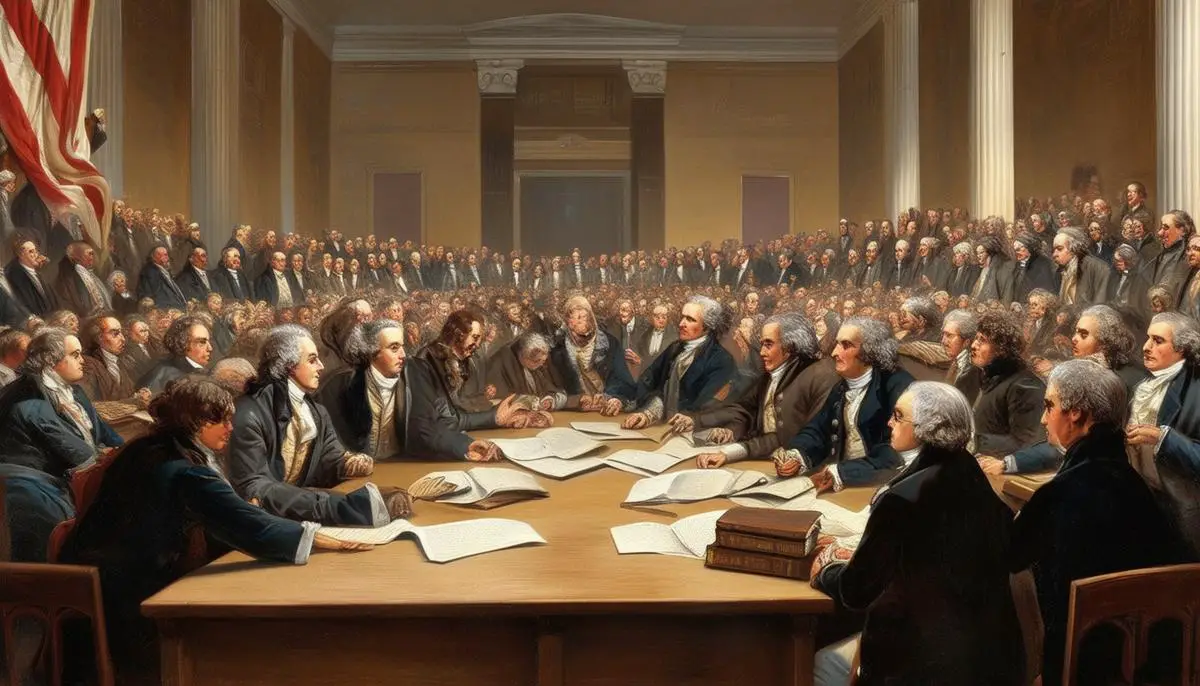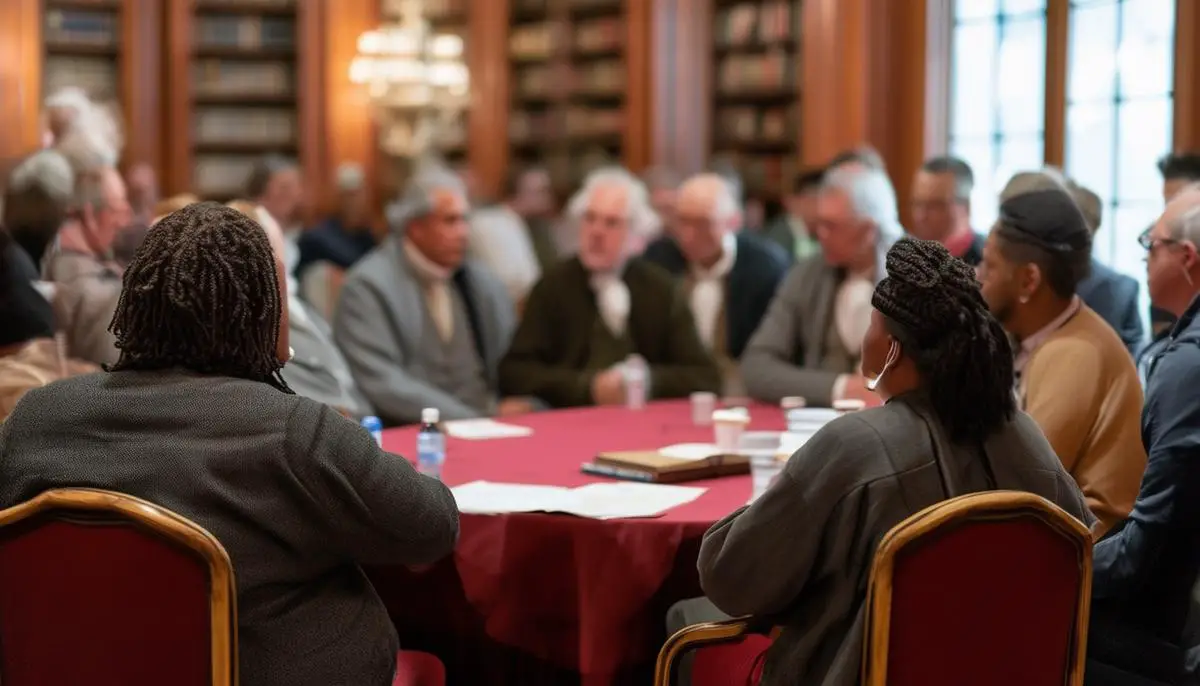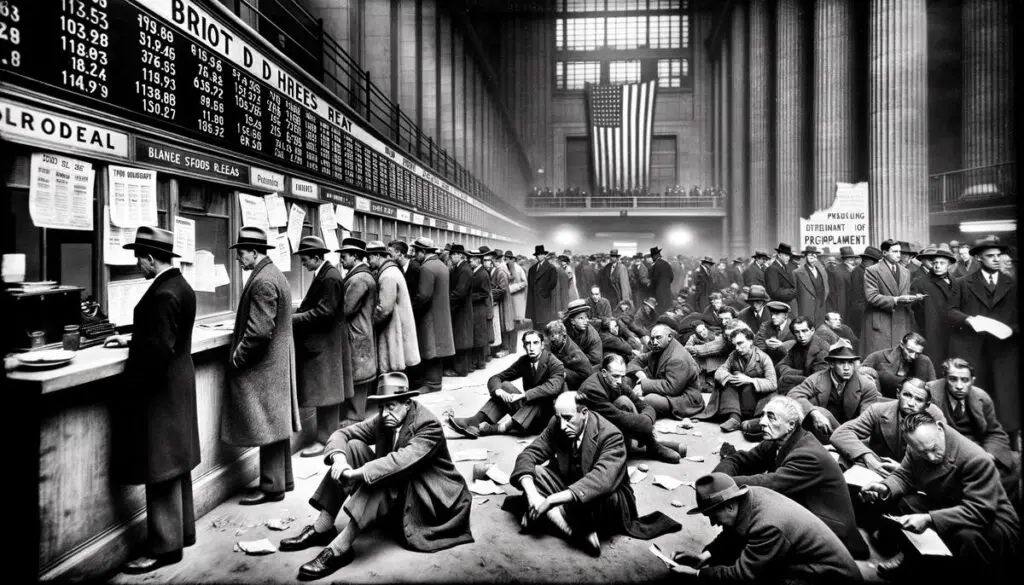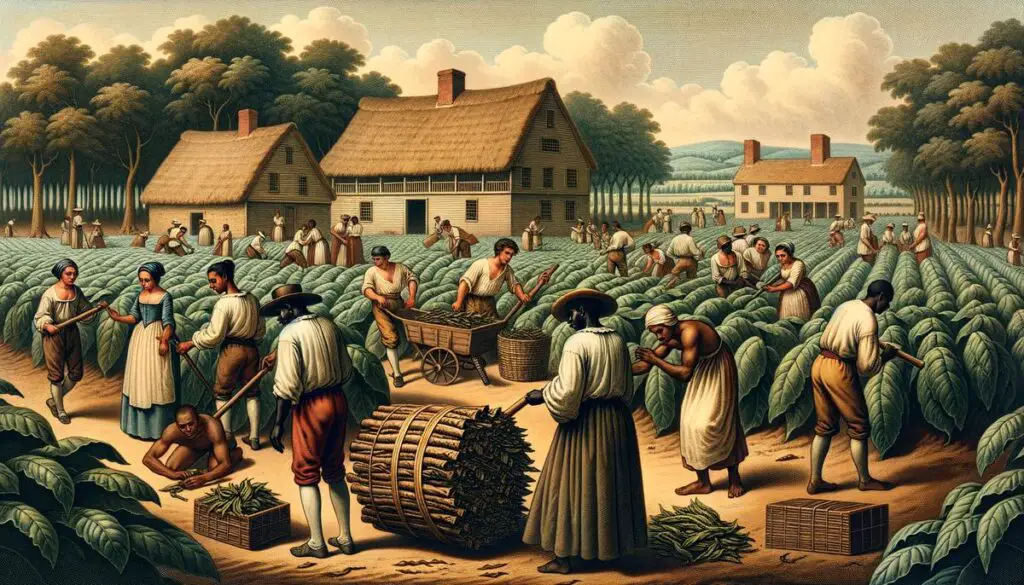Constitutional Framework
The shaping of America's constitutional framework was a process of compromise and foresight during the Philadelphia Convention of 1787. Originally convened to revise the Articles of Confederation, the assembly sought to establish a new document for a more robust governance structure.
Debates centered around two opposing schemes for structuring Congress, reflecting regional and size-based rivalries. The Virginia Plan proposed a bicameral legislature with representation proportional to each state's population, appealing to larger states. The New Jersey Plan advocated for a unicameral legislature with equal representation for each state, preserving an equal footing regardless of size.
The Great Compromise, also known as the Connecticut Compromise, resolved the impasse by creating a bicameral legislature. The House of Representatives would be proportional to population, while the Senate would grant equal representation from each state.
Discussions then focused on defining the roles within these branches, resulting in a system of checks and balances to prevent any single branch from accruing too much power. Each branch — legislative, executive, and judicial — was equipped with specific powers to counterbalance the others.
The Executive Branch was modeled on the governorship of New York, combining robust authority with accountability measures. The President would serve as both the chief enforcer of national laws and a symbol of national unity, subject to checks from the other branches.
This constitutional framework has endured numerous challenges but remains fundamentally intact. The framers' foresight in allowing for adaptability through amendments has enabled the system to evolve with the nation's growth and changing needs, demonstrating remarkable resilience.

Federalist vs Anti-Federalist
The dialogue between Federalists and Anti-Federalists further shaped the contours of American government, exemplifying the tension between autonomy and unity in the nation's evolution.
Federalists, led by Alexander Hamilton, James Madison, and John Jay, advocated for a strong central government as essential for the nation's survival and prosperity. They saw a dominant central government as necessary to regulate commerce, conduct diplomacy, and maintain security, fearing that without it, the nation would fragment and succumb to internal conflicts or external manipulations.
Anti-Federalists, in contrast, harbored a deep suspicion of centralized power based on their experiences with British colonial rule. Leaders like Patrick Henry and George Mason feared that a strong national government could become despotic, overriding local autonomy and liberties. They highlighted the absence of provisions to protect fundamental personal rights, arguing that such an oversight could lead to arbitrary decisions by a distant bureaucracy.
The inclusion of a Bill of Rights became a central point of contention. Federalists argued that a strong central government with explicit powers and prohibitions didn't require additional civil liberties protections. Anti-Federalists insisted that without explicit protections, every right was vulnerable to governmental encroachment. James Madison, responding to national sentiment, drafted the Bill of Rights as amendments to the newly ratified Constitution.
The first ten amendments were intended to address concerns about central authority by enshrining cherished liberties within the nation's legal framework. They underscored the principle of checks and balances between branches and levels of government, as well as the protection of individual rights.
The Federalist and Anti-Federalist debate contributed to the robustness of American institutions by establishing a balance between national authority and local influence. It ensured that individual freedoms remained sacrosanct while powers were delegated across federal and state lines. This foundational conversation continues to shape contemporary debates on federalism, personal liberty, and the role of government in American lives.
Founding Fathers' Legacies
The legacies of America's Founding Fathers persist as cornerstone references in present-day political discussions and interpretations of governance. These revolutionary leaders established a nation and left an indelible mark on the ideological essence of American political life, fueling debates around liberty, federal authority, and democratic representation.
Figures like George Washington, Thomas Jefferson, and James Madison are revered as visionaries who crafted revolutionary documents like the Declaration of Independence and the Constitution. The principles they penned, such as the self-evidence of particular rights and truths, continue to resonate and guide contemporary American society.
The delicate checks and balances conceived to prevent authoritarian drift, as well as the celebrations of unity and diversity, find discussion and dissection when emerging challenges test their limits. The personal legacies of the Founding Fathers are also subject to modern interpretation and debate, revealing insights into their flaws and achievements.
Washington's leadership and relinquishment of power exemplify virtues touted in democratic governance. Hamilton and Jefferson are often portrayed as nationalists or proto-nationalists, innovators or idols, champions of federal oversight, or proponents of smaller government, reflecting how their thoughts still fuel diverse ideologies in the political spectrum.
The evolving discourse around the Founding Fathers' failures, particularly their acquiescence to slavery, underscores a contradiction between their championing of liberty and their countenancing of subjugation. This critical reappraisal speaks to how these figures were restrained by their temporal context and socio-cultural outlooks.
Despite these critical views, the ceaseless citation and reverence accorded to the Founding Fathers encapsulate an American veneration of founding ideals that continually mold the ethos of the republic. Their thoughts, writings, and deeds persist in fostering dialogues that transcend generations, discussing the essence of freedom, custodianship of power, and the rights bestowed upon individuals.
While the Founding Fathers cannot remain indefectible anchors as moral arbiters, acknowledging their footprints allows for a transparent, evolving comprehension and application of their contributive benchmarks. They form an ongoing syllabus in America's political discourse, inviting recounting, dissemination, and debate under the scrutiny of modern perspectives and civic thought.

Controversies and Criticisms
The view of America's Founding Fathers has evolved significantly over time, marked by both laudatory accolades and incisive criticisms. At the heart of these criticisms is an ethical examination of their treatment of crucial societal issues, particularly their roles in perpetuating slavery, their attitudes and policies towards Native Americans, and their exclusion of women and minorities from early political rights.
Slavery remains the most glaring and morally reprehensible blight on the legacies of many Founding Fathers. Figures like Thomas Jefferson, who penned the words "all men are created equal," owned slaves, and their lifestyles and economies were deeply intertwined with human enslavement. While some, like Alexander Hamilton, voiced opposition to slavery, their actions failed to dismantle systemic chattel slavery during their lifetimes. This historical contradiction highlights profound disparities between the values professed in foundational documents and the everyday practices of these individuals.
The treatment of Native Americans by the Founding Fathers is equally complex and acrimonious. Policies put in place during the early years of America led directly or indirectly to removal, conflict, and the erosion of Native cultures and sovereignty. The Founding Fathers, vested in expanding territories for a newborn republic, often chose paths that resulted in tragic consequences for indigenous populations.
Women and other minorities were conspicuously absent from formal political roles and decision-making processes during the early stages of America's democracy. Despite their critical roles within the socio-political matrix of the time, the political system was decidedly patriarchal, echoing broader 18th-century societal norms that viewed women and minorities as unsuitable for electoral processes or public office holding.
The electoral and systemic frameworks established by the Founding Fathers, deeply vested in property rights and literacy criteria, functioned to exclude racial minorities and the poorest classes from political participation. This indirect gating of democracy showcases a governance model constructed to fit and serve a selective segment of the population — one predominantly rich, white, and male.
These critiques do not diminish entirely the achievements of these early leaders but add significant dimensions to understanding them. They instigate profound discussions about the footprints of foundational errors on subsequent American societal structures. Generational inculcation of these rigid frameworks occurs even as contemporary movements seek social justice and rectification deeply tethered to these original contradictions.
Contemporary analysis provides a nuanced view meant to reconcile commendable visions with historical failings. Recognizing the Founding Fathers' accomplishments alongside their faults offers a way for history to serve its purpose: to provoke informed discourse about progression, reconciliation, and the comprehensive retrospection of American ideals against actions.
Examining the multifaceted legacies of America's Founding Fathers confronts their visionary contributions and the critical ethical examinations they provoke in modern discussions. This balanced perspective is crucial for fostering a comprehensive understanding of how foundational ideals and actions continue to influence American society and governance.
- Ellis JJ. Founding Brothers: The Revolutionary Generation. New York, NY: Vintage Books; 2002.
- Wood GS. Revolutionary Characters: What Made the Founders Different. New York, NY: Penguin Press; 2006.
- Wiencek H. An Imperfect God: George Washington, His Slaves, and the Creation of America. New York, NY: Farrar, Straus and Giroux; 2003.
- Waldstreicher D. Slavery's Constitution: From Revolution to Ratification. New York, NY: Hill and Wang; 2009.
- Dunbar-Ortiz R. An Indigenous Peoples' History of the United States. Boston, MA: Beacon Press; 2014.
- US Founding Fathers - April 21, 2024
- WWII and America - April 20, 2024
- Civil Rights Movement Overview - April 19, 2024




